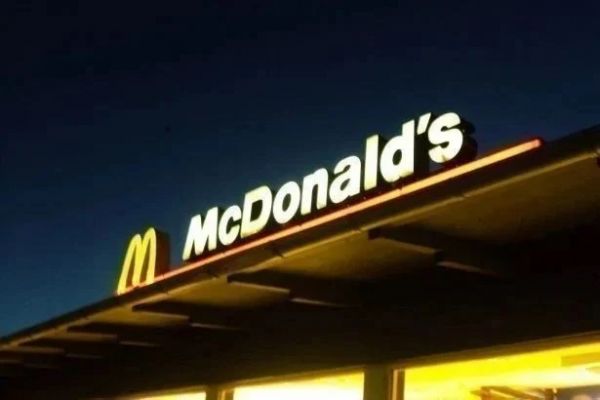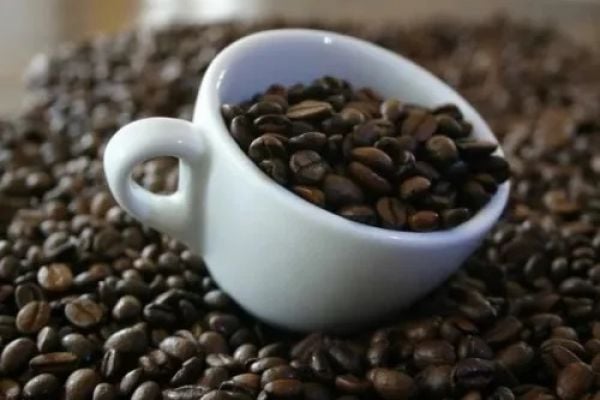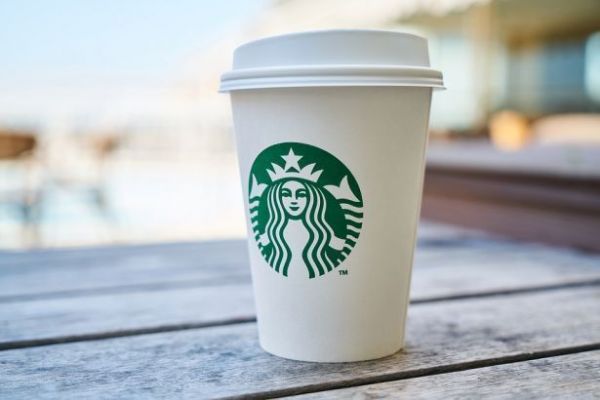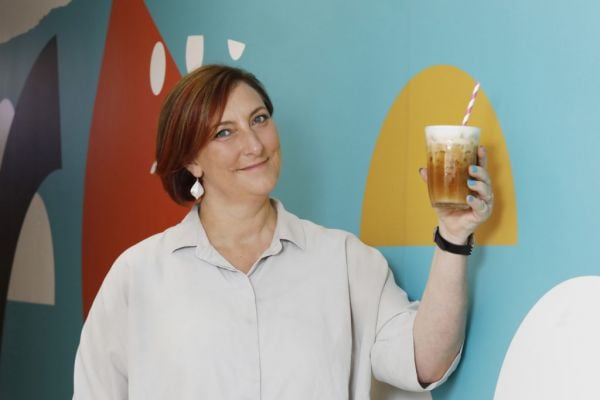McDonald's Corp MCD.N said on Wednesday 9 March that the temporary closure of its 847 stores in Russia will cost the fast-food chain approximately $50 million a month.
A cascade of major American brands, including Starbucks Corp SBUX.O, PepsiCo Inc PEP.O and Coca-Cola Co KO.N, followed McDonald's on Tuesday 8 March in saying they would cease some or all business in Russia following Moscow's invasion of Ukraine.
McDonald's, an icon of the post-Soviet era, runs 84% of its Russian locations itself and said it will continue paying all of its 62,000 staff and restaurant employees there. Other costs will come from sites it leases and supply chain operations, chief financial officer Kevin Ozan said during a UBS conference on Wednesday 9 March.
"This is a really challenging and complex situation for a global company like us," he said.
Seven other fast-food brands with more than 2,600 outlets combined in Russia could also take a financial hit from any decisions to pull out, even though nearly all of those restaurants are owned and operated by independent franchisees.
Papa John's International Inc PZZA.O said in a regulatory disclosure on Wednesday 9 March that it could end up having to absorb the cost of $15.2 million of receivables associated with its master franchisee in Russia, which runs all of its 188 restaurants there.
Royalties from the franchisee made up less than 1% of Papa Johns total revenue in 2021, the company said.
The pizza chain also said on Wednesday 9 March that it ceased all operational, marketing and business support to - and engagement with - the Russian market, and that it is not receiving any royalties from restaurants there. Its Russia franchisee owns and operates its own supply chain.
Delivery App Glovo To Provide Humanitarian Support In Ukraine
In other food-business-related news, the above news followed news that Spanish online delivery platform Glovo has partially resumed operations across 20 Ukrainian cities, including the capital Kyiv, to provide essential services and give humanitarian support, it said on Tuesday 8 March.
Having suspended all operations on 24 February after Russia invaded, Glovo said it restarted in a limited capacity last week after careful evaluation.
"This was due to an increased demand for vital services to residents and NGOs who are unable to access food, medicine and urgent basic goods", Glovo said.
More than two million people have fled Ukraine since President Vladimir Putin launched the invasion nearly two weeks ago, and hundreds of thousands are trapped without basic supplies like medicine or fresh water.
Moscow calls its action a "special military operation" to disarm its neighbour and dislodge leaders it calls "neo-Nazis." Kyiv and its Western allies dismiss that as a baseless pretext for an unprovoked war against a democratic country of 44 million people.
Barcelona-based Glovo, which is majority-owned by Germany's Delivery Hero DHER.DE, will not book any financial gains from the services in Ukraine and all profits will go to partners, NGOs and pharmacies, the company said.
"With groups of individuals self-organising deliveries to help people, there is a clear need and high demand for Glovo’s platform to help connect suppliers, couriers and those in need, in a secure and safe way", the company said.
Glovo said it has delivered more than 10,000 orders since restarting last week and has more than 700 couriers currently able to operate in the country.
The company stressed that worker safety was its top priority and it was closely monitoring developments in the conflict.
"In case of attacks, Glovo will stop operations immediately," the statement read.
The online delivery app will function between the hours of 10:00 a.m. and 6:00 p.m. local time (0800 to 1600 GMT) to comply with local curfews.
PREVIEW-Oatly To Emerge Winner In 2022 Plant-Based Peers' Battle
In futher food-business-related news, all of the above news followed news that Oatly Group AB OTLY.O is expected to forecast strong sales growth for 2022 when it reports results as health-conscious consumers consistently turn to the company's plant-based milk, a contrast to the demand slowdown seen by Beyond Meat.
Many restaurants and retailers have partnered with Oatly in recent months to offer vegan options to customers. One of the biggest boosts has, however, come from a US oatmilk supply agreement with Starbucks Corp SBUX.O.
As a result, Wall Street's sentiment on Oatly has become more favorable than that on alternative meat maker Beyond Meat Inc BYND.O, which has seen its sales growth fizzle through the pandemic for a number of reasons.
"Beyond Meat has not meaningfully expanded distribution in the US over the past year or so...Oatly's sales growth is currently being driven by expanded distribution," CFRA Research analyst Arun Sundaram said.
Context
Oatly is expecting to provide 85% to 90% of Starbucks oatmilk needs in 2022. Chief executive officer Toni Petersson said late last year performance of Oatly's oatmilk at the coffee chain exceeded expectations.
Approximately 30 million American adults have some degree of lactose intolerance by age 20, according to US National Library of Medicine's MedlinePlus, making alternative milk a must-buy product for many of them.
Oatly said in November that it had opened its first production facility in Ma'anshan, China, just a few months after opening its first Asian factory in Singapore, signaling its margins would improve by bringing more production in-house.
Fundamentals
Analysts project Oatly to record a near 58% increase in revenue for 2022, with loss also shrinking from 2021 levels. In contrast, Beyond Meat's revenue is expected to rise only 27%.
Oatly has the second highest projected revenue growth among its food and beverage growth peers, only behind energy drink maker Celsius Holdings Inc CELH.O, according to brokerage Piper Sandler.
Still, Oatly will need to overcome potential mechanical and automation issues during its production ramp up as well as broader supply-chain disruptions to ensure demand for its milk, ice cream and yogurt converts into sales.
Revenue for the fourth quarter is expected to rise 2% sequentially, despite recalling a few products and discarding less than one million liters of inventory due to a quality issue in November.
Wall Street Sentiment
** Approximately 68% of analysts rate Oatly "buy" or higher, compared with just 10% for Beyond Meat.
** Oatly's current mean price target implies an upside of 136% to Monday's close, versus Beyond Meat's 25%.
Spanish Rule Protecting Gig-Economy Riders Leads To Labour Shortage, Uber Says
In more further food-business-related news, all of the above news followed news that a Spanish law passed last year forcing food delivery companies to contract their couriers as staff has caused a labour shortage as many prefer to remain self-employed and work for rivals that flout the regulation, Uber Eats said on Tuesday 8 March.
The Spanish branch of Uber's UBER.N online food delivery platform published on Tuesday 8 March an open letter to the Labour Ministry complaining that the contracts it offered to freelance 'riders' failed to retain enough of them to assure its services.
"Our fleets of collaborators can't find enough couriers because these prefer to be self-employed to work with Glovo,...the only company that allows it, against the Rider Law," Uber Eats said, referring to the May 2021 decree demanding firms grant formal work contracts to protect gig-economy workers.
A spokesperson for Glovo said the company, which has been taken over by Germany's Delivery Heros DHER.DE, did not break any law and said it had taken steps to ensure it complied.
The Uber Eats letter fuels a European controversy over the legal status of the thousands of cyclists who criss-cross city centres with oversized branded backpacks, and who generally lack benefits such as minimum wage, paid holidays and pension rights.
The European Commission in December recommended other EU countries follow Spain's lead, a move that is long overdue, according to unions, but which firms say may lead to job losses.
The Labour Ministry said it demanded all platforms abide by the new law. "The majority of digital platforms respect this rule," the ministry said, without mentioning any names of firms that did not adhere to the rules.
The Spanish decree, backed by trade unions and business associations, was met with scepticism by several riders associations and labour experts who said the new legislation did not completely resolve the legal situation of the couriers.
Uber Eats said that couriers preferred the flexibility to focus on lucrative rush hours they enjoy as self-employed than the better social protection work contracts offered, but which also came with requirements to work at other less lucrative times.
UK's Hotel Chocolat Profit Jumps 56% On Growing Brand Appeal
In additional food-business-related news, all of the above news followed news that British chocolatier Hotel Chocolat HOTC.L has reported a 56% rise in first half profit as the appeal of its brand grew in its home market, the United States and Japan.
For the six months to 26 December the luxury chocolate maker, retailer and wholesaler made a pretax profit of £24.1 million, up from £15.5 million a year earlier, on revenue up 40% to £142.9 million.
Hotel Chocolat sells its products online and through sites in the UK, Japan and the United States. It also has an organic cacao farm, hotel and visitor attraction in Saint Lucia, as well as a chocolate factory in Cambridgeshire, eastern England.
The company said inflationary pressures were mitigated, with profits growing faster than sales.
Trading so far in 2022 has continued to be in line with the board's expectations.
"The multi-channel performance of the UK remains encouraging, and the new markets continue to show promising potential for growth and profitability," said CEO Angus Thirlwell, who co-founded the business in 1993 and owns 27% of the equity.
Shares in Hotel Chocolat, up 21% over the last year, closed on Tuesday 1 March at 450 pence, valuing the business at £622 million.
News by Reuters, edited by Hospitality Ireland. Click subscribe to sign up for the Hospitality Ireland print edition.









